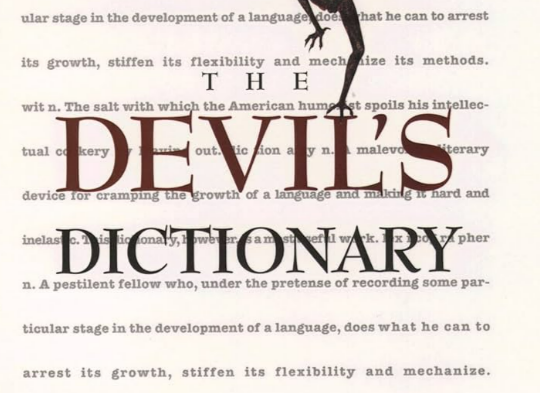Chapter N
byChapter N begins with Bierce’s take on Nectar, the mythical drink of the gods, rendered here as a lost recipe that modern drinkers in Kentucky may have accidentally stumbled upon. His tone lightly mocks the human tendency to romanticize ancient myth while indulging in earthly pleasures that serve similar purposes. Bierce transforms nectar from a symbol of divine vitality to a joke about strong spirits, linking the sacred and profane through satire. This sets the stage for the chapter’s interplay between elevated ideas and their flawed, human manifestations. In this framework, ideals are rarely immune to human folly.
The definition of Negro is both direct and layered, revealing how race has been politicized and simplified in American discourse. Bierce critiques political parties for using the term as a token rather than addressing the complexity of identity and inequality. His choice to reflect the tension rather than resolve it invites readers to consider how language can obscure deeper social issues. Without offering a solution, he lays bare the failure of institutional empathy and the reduction of identity to policy. Through this, Bierce exposes how public conversation often sidesteps uncomfortable truths with sanitized language.
Turning to Neighbor, Bierce plays with the biblical command to “love thy neighbor,” pairing it with the reality that neighbors often serve as a source of irritation or conflict. This contradiction captures his broader theme: that moral ideals frequently crumble under daily interaction. While society preaches love, human behavior tends to favor boundaries and exceptions. His satirical tone points to the hypocrisy within communal living, where civility masks suspicion. The definition humorously reflects the tension between proximity and privacy in modern relationships.
Bierce approaches Nihilism not as a philosophy of despair, but as an exaggerated refusal to find value in anything. He frames it as the mental escape hatch of those who find the world too absurd to engage with sincerely. While it may appear intellectual, Bierce suggests it is often an excuse to reject responsibility or connection. By flattening deep thought into posture, he critiques the hollow edge of radical skepticism. In contrast, Nirvana is rendered as the final goal of detachment—emptiness mistaken for peace. Bierce treats this Eastern spiritual idea with a similar cynicism, suggesting that escape from suffering can look suspiciously like denial.
The word Noise gets reframed as civilization’s natural byproduct—ever-present and increasingly meaningless. What once symbolized celebration or warning now represents clutter. Bierce implies that as societies evolve, the signal-to-noise ratio drops: more sound, less clarity. The entry reflects on the modern world’s tendency to confuse loudness with importance. In this light, Nonsense becomes not just falsehood, but a kind of camouflage—words used to distract or overwhelm rather than inform. Bierce shows how nonsense often passes for intelligence when delivered with confidence or flair.
Political language comes under scrutiny next. Nominate is described as the act of choosing someone to endure public criticism under the illusion of public trust. The Nominee is framed not as a leader but as a scapegoat-in-waiting, bound for both praise and eventual disappointment. Bierce reduces political elevation to performance, stripping away the pretense of noble intent. His definitions remind us how much of governance is built on spectacle rather than service. The wit lies in presenting ambition as self-destruction disguised as duty.
In defining Novel, Bierce dismisses the literary form as an extended anecdote too long for the telling. He implies that many novels substitute volume for insight, stretching shallow ideas over hundreds of pages. His jab questions whether fiction enlightens or merely entertains. It reflects a skepticism toward popular art that prizes marketability over meaning. Likewise, November becomes a metaphor for emotional fatigue, cast as a month that dampens the soul. Bierce links the calendar to human moods, pointing to the way external rhythms shape internal states.
Every entry under “N” follows Bierce’s pattern of undermining what we assume to be sacred, noble, or wise. He peels back each word to expose its contradiction, showing how language often cloaks convenience as virtue. His humor is never empty; it challenges readers to recognize the flawed logic behind commonly accepted truths. By reframing these terms, Bierce forces an honest re-evaluation of social ideals. In his hands, the dictionary becomes a mirror—one that reflects not how we define words, but how those words define us.

